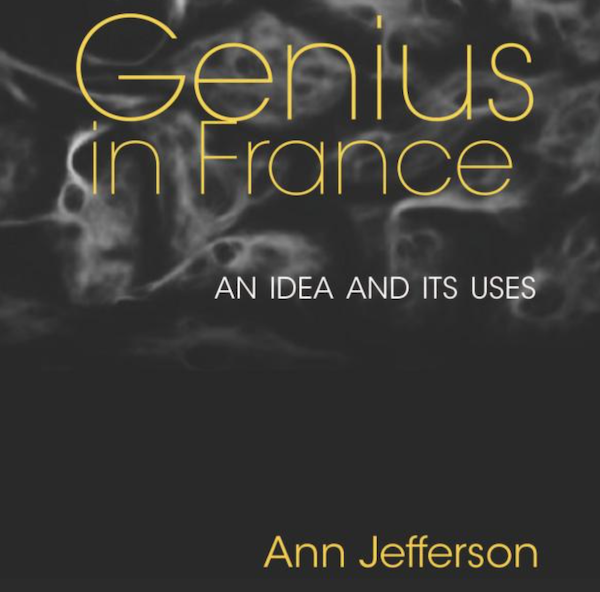Are You a Genius?
Genius is one of those topics that get everyone interested. And interest is likely to begin with consensus. It is an uncontested commonplace to regard Shakespeare as a genius, and most people will probably agree that Mozart and Einstein were geniuses. A majority will probably go along with the claim that Beethoven was a genius, but then, unlike Mozart, he wasn’t a child prodigy. And if Picasso was a genius, he complicates things by also being a bit of a showman.
When it comes to genius, the question of ‘Who?’ soon shades off into ‘What?’ as the issue of criteria arises: is precocity essential? Is the genius found in the sciences the same as that in the creative arts? (Kant said not.) Are geniuses allowed to show off and still be geniuses? And is there a necessary relation between genius and insanity?
Even the cases that invite consensus come with a margin of doubt or obscurity attached. Shakespeare apparently emerged from nowhere, to the point that his authorship of the plays that bear his name has been disputed by some. Mozart’s precocity is integral to his reputation as a genius, but was his skill the result of paternal pressure? A mechanical rather than a creative phenomenon? Einstein’s mathematical ability is frequently related to the structure and content of his brain, once again supplying a potentially mechanical explanation for exceptional talent. But when you look at the slides of brain tissue that were taken from his body after his death, the claim will leave you more than a little mystified. If—thanks to Apple’s recent iPad app—you’re looking at the source of genius, what exactly is it that you are seeing?
These questions are further complicated by the fact that the word ‘genius’ as we apply it to Shakespeare would not have meant to him what it means to us now. In the sixteenth century, a genius wasn’t a person but a tutelary spirit, and it could come in good and evil forms. Or—but this has a different Latin etymology (ingenium as opposed to genius)—it referred to a person’s prevailing character or aptitude. It didn’t necessarily imply exceptional ability, and until well into the eighteenth century it was something you possessed rather than something that you were. The ‘innate intellectual or creative power of an exceptional or exalted type’ and the ‘exceptionally intelligent or talented person with exceptional skill in a particular area of art or science’ (italics mine, definitions courtesy of the OED) are recent inventions.
So the real question is not so much ‘What is genius?’ or even ‘Who is a genius?’ but rather, ‘What stake do we have in the whole idea of genius?’ or even, ‘Who’s asking and what’s behind their question?’
These are the issues I address in my new book by looking at the different views and theories of genius over the course of three centuries, from the start of the eighteenth century to the present day. I concentrated on France, partly because French literature and intellectual history happen to be my area of expertise and personal interest; partly because the French contribution to the literature on genius hasn’t received its due; but mostly because the variety and the inventiveness of the views and theories of genius in France was a story worth telling for itself. On the one hand genius risks losing its interest with the increasing tendency to reduce it either to IQ (Einstein and Stephen Hawking supposedly set the standard with scores of 160 apiece), or, in the words of Thomas Edison, to ‘99 per cent of perspiration’ as against a mere ‘1 per cent of inspiration.’ And on the other hand, there is a literature on genius that keeps interest in the question alive through the constant reinvention of the terms in which that interest is framed. For me it’s this literature, more than the phenomenon itself, which makes genius a topic worth paying attention to. And the more you read, the less likely you are to be able to come up with any definition of what genius might be.
For eighteenth-century commentators, genius was self-evident: you knew it when you saw it, but for the nineteenth-century Romantics, genius was essentially misunderstood, and only genius itself was capable of recognizing its own kind and paying it the tribute it deserved. After the French Revolution, the question of national genius (another sense of the word, deriving from the genius loci) was subject to particularly anxious or over-assertive scrutiny. A number of nineteenth-century novels allowed for a rare feminine role in genius, but almost always doomed genius to failure. The medical profession turned the genius into a madman, while the experimental psychologists at the end of the century devised the IQ test which made genius nothing more than a high point on a continuous scale of intelligence. Child prodigies were the stuff of children’s literature but real examples in the twentieth century generated skepticism about the whole notion of genius, until Julia Kristeva came along and rehabilitated genius as essentially feminine, and Jacques Derrida embraced imposture as its essential quality. What all this indicates is that the idea of genius is curiously labile, that it changes shape, definition and value according to the way it’s talked about, but also that there’s something about the idea that, as Claude Lévi-Strauss said about animals, makes it ‘good to think with.’
